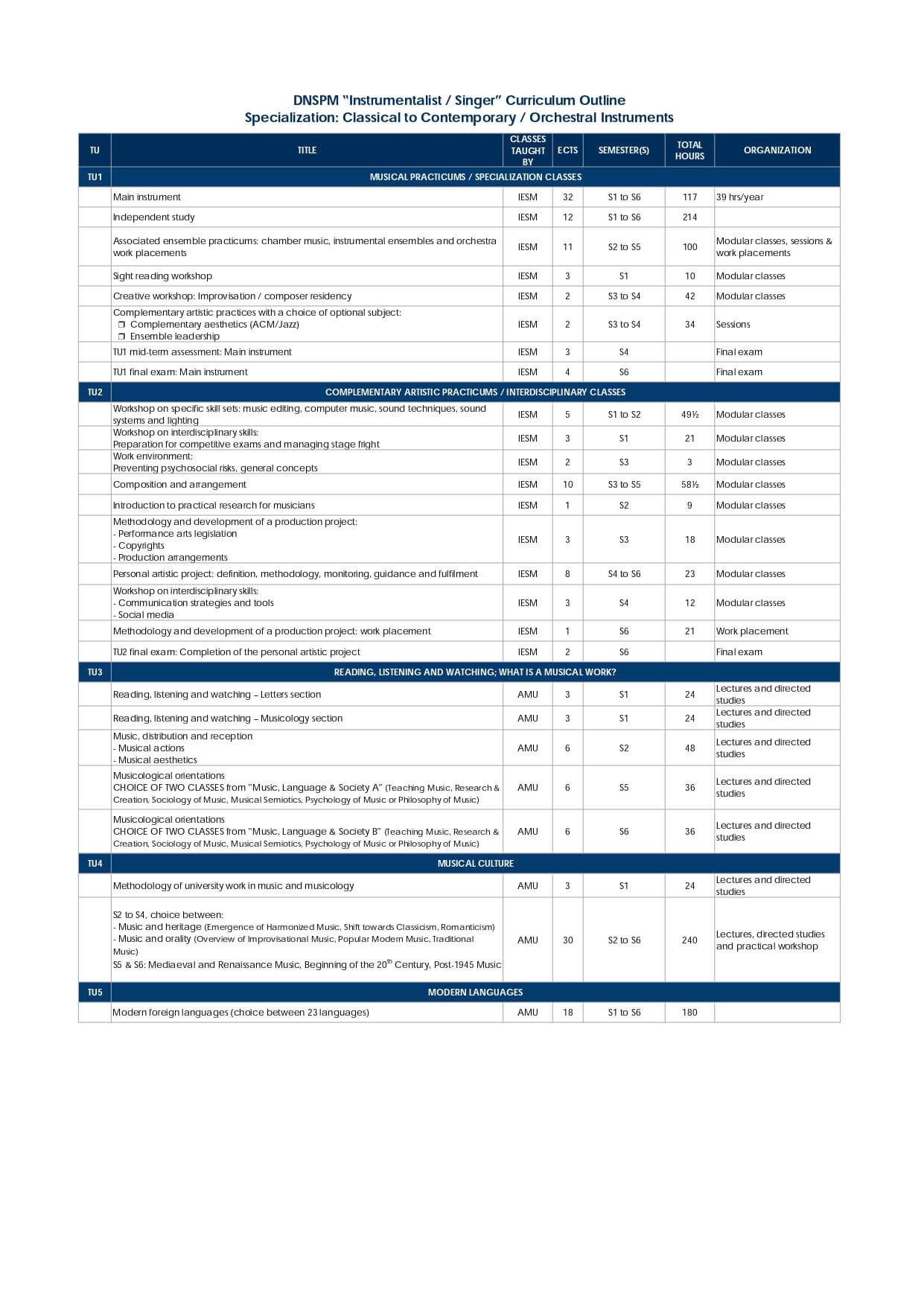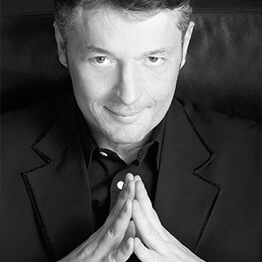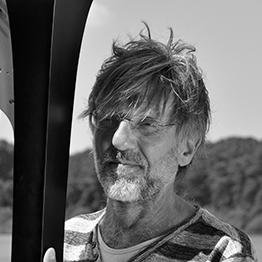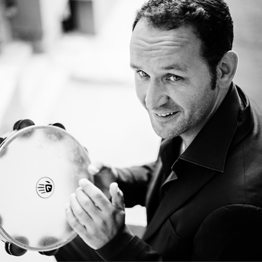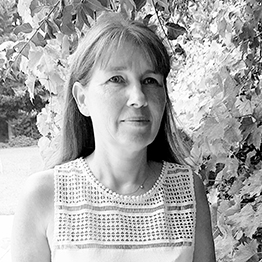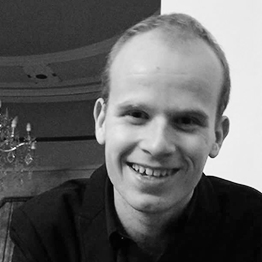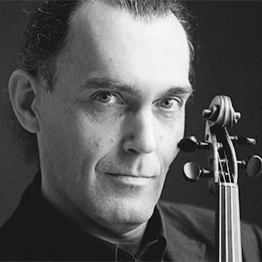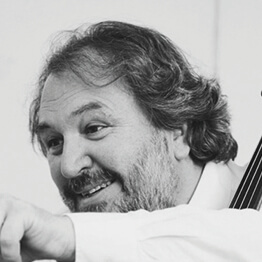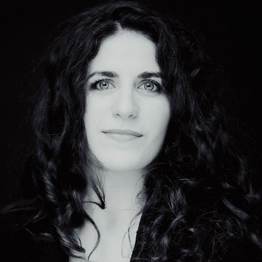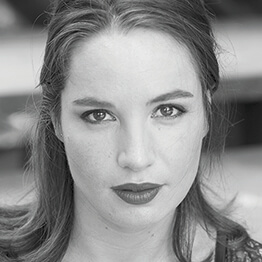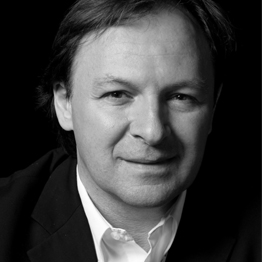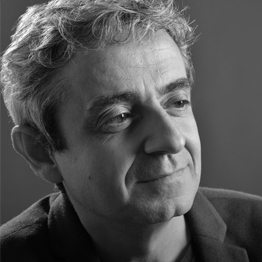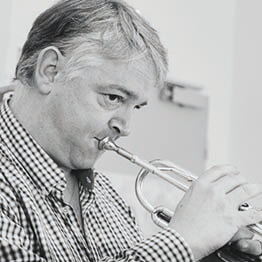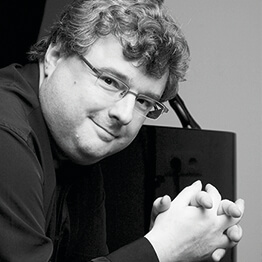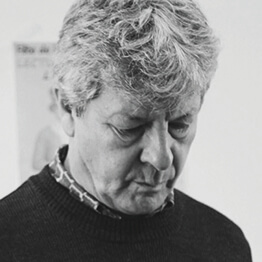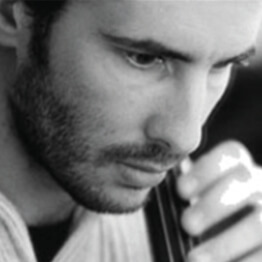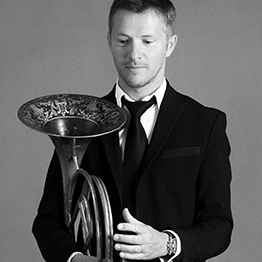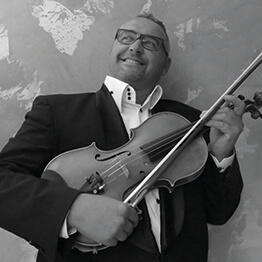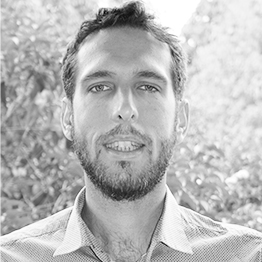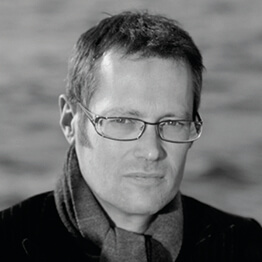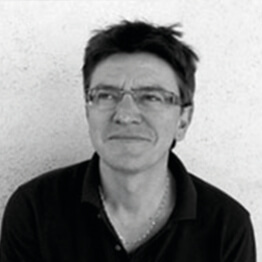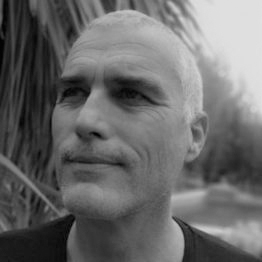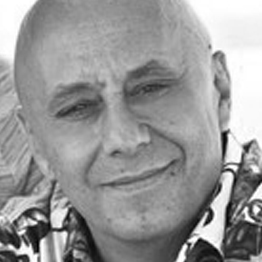ADVANCED TECHNICAL DIPLOMA IN MUSIC (DNSPM)
Level II – 180 ECTS credits – 3 years – 1350 hours
Course linked to the bachelor’s degree in Musicology, in partnership with the Faculty of Arts, Letters, Languages and Humanities (UFR ALLSH) at Aix-Marseille University
The DNSPM can be earned as part of :
• A dual Bachelor/DNSPM course in 3 years
• A single DNSPM course (with an accredited bachelor’s degree) in 3 years
• A dual DNSPM/DE course (with an accredited bachelor’s degree) in 4 years
• A triple Bachelor/DNSPM/DE course in 4 years
IESM is accredited to issue DNSPM diplomas for the “Instrumentalist / Singer” specialization in the following fields and disciplines:
Classical to contemporary music :
violin, viola, cello, double bass, flute, oboe, clarinet, bassoon, trumpet, trombone, French horn, percussion, piano or harp.

AIX-MARSEILLE UNIVERSITY
Aix-Marseille University has a student body of 74,000, including 10,000 international students.
In keeping with its Mediterranean heritage, Aix-Marseille University is the fruit of the merger of the Universities of Provence, the Mediterranean, and Paul Cézanne.
Today, Aix-Marseille University is the biggest French-speaking university in the world, making Aix and Marseille a world-renowned university cluster.
With its wide array of fundamental and vocational courses (bachelors, masters, doctorates, professional bachelors, engineering degrees, State health diplomas and university diplomas in technology), Aix-Marseille University offers a multitude of high-quality classes in five core subject areas: Arts, Letters, Languages and Humanities; Law and Political Science; Economics and Management; Health; and Science and Technology.
Classes for the bachelor’s degree in Musicology are given at the Faculty of Arts, Letters, Languages and Humanities (ALLSH), located on the Aix-en-Provence campus.
entrance exam for the DNSPM course
applications accepted form 11 january to 26 march 2021
Testing for the following instruments will take place between 26 April and 7 May 2021:
- Viola
- Clarinet
- Double bass
- French horn
- Bassoon
- Flute
- Harp
- Oboe
- Percussion
- Piano
- Trombone
- Trumpet
- Violin
- Cello
dnspm teaching team
instruments
polyphonic instruments & percussion
strings
woodwinds
brass
ensemble practicums
sight reading
information about the DNSPM
information and fees – DNSPM
application
Online applications open beginning on 18 January 2021
FEES
Registration for the entrance exam:
€85 (grant holders: €42.50)
Tuition
Initial training: €500 per year of studies (less any tuition paid to the University)
Grant holders are exempt from paying tuition
for more information
IESM Teaching Support Office:
Telephone: +33 (0)4 42 60 43 41
Email: polepedagogique@iesm.fr
course organization – dnspm
Course length and contents
The standard time to complete the course is 1,350, typically spread out over six semesters.
The curriculum is broken down into teaching units (TUs) which are coherent series of class modules:
- TU1: Classes in the area of specialization
- TU2: Complementary practicums
- TU3: Knowledge and associated practices
- TU4: Musical culture
- TU5: Modern languages
Each TU comprises a set of modules. The details of the TUs and their modules are presented in the DNSPM curriculum outlines:
The normal length of this course is six semesters. This may be extended to seven or eight semesters of attendance of DNSPM classes if the student has to retake any TUs or in other extraordinary circumstances. The partnerships between IESM and Aix-Marseille University involve a division of classes based on chosen fields of expertise. A system is in place to jointly certify the results.
The structure in question (IESM or Aix-Marseille University) is responsible for monitoring and evaluating the students in each module, under the authority of the IESM Director. The methods for doing so are jointly prepared and communicated to the students.
The number of hours of instruction may be defined by semester, by year or over the entire length of the course, depending on the specific needs of the discipline or of the student, or as a function of specific organizational constraints.
The classes may vary from one year to the next, based on the orientations provided by the teaching team. The contents may differ by field, specialization or optional subject and may be adapted to a student’s specific needs, in view of their prior learning or experience.
Each year, IESM classes are subject to approval of the budget by the institute’s Board of Governors. Consequently, students may not demand any class that is not planned or given (whether part of the primary or complementary curriculum).
reference texts
- Reference texts
The DNSPM (Advanced Technical Diploma in Music) is governed by the following regulatory texts:
- French Decree 2007-1678 of 27 November 2007
- French Order dated 1 February 2008 on the DNSPM
The DNSPM is included on the national list of Level II professional certifications within the interministerial definition of certification levels. It is equivalent to 180 European credits (ECTS). The organization of the course and the issuing of the DNSPM are both subject to the course’s academic policy and the appendices thereto, adopted following deliberations by the IESM Board of Governors on 20 December 2018 (academic policy) and 30 January 2020 (appendices).
- Accredited disciplines
IESM is accredited to issue the DNSPM (Advanced Technical Diploma in Music), by a ministerial decision dated 1 July 2016. IESM provides training in partnership with Aix-Marseille University.
educational project
For the DNSPM, the educational project is based on a desire to provide individual support to student musicians in their professional certification courses. That project is applied to the different situations covering the different professions of musicians:
· Offering classes in which culture, practice, creativity and autonomy are closely intertwined
· Providing personalized guidance in the students’ artistic projects (which replace the final exam)
· Preparing them to become professional artists through a variety of experiences and work placements at professional structures for artistic creation and distribution, and by guiding them through the different formalities and meetings with partners that are essential to building, developing and fulfilling professional musical plans.
ORIENTATION N°1 : SYNERGIES BETWEEN EXCELLENCE AND CREATIVITY
The education provided for the DNSPM reconciles the demand for artistic and instrumental excellence and its transposition to the professional world of the performance arts. For all the course’s aesthetics and disciplines, the area of expertise focuses on practising and mastering the broadest possible repertoires, with a heavy emphasis on the fields of contemporary music, incorporating the mastery of instrumental movements, knowledge of the instrument’s craftsmanship and electronic sound manipulation techniques.
This area of expertise necessarily includes a deep dive into improvisation techniques, as well as writing and composition, an introduction to aesthetics which are complementary to the main subject area, contributing to the development of creativity and providing tools in support of the full implementation of each student’s personal artistic project, including in combination with the various fields of the performance arts (theatre, dance, etc.) and the visual arts.
ORIENTATION N°2 : INCORPORATION OF CULTURE INTO CLASSES
Musical and musicological culture is the seed from which an independent professional musical career grows. Over and above the acquisition of a body of knowledge, it aims to provide students with methodological tools that allow them to delve deeper into the subjects, including putting that knowledge into perspective within the current climate of creation and performance.
It also aims to develop students’ critical thinking and targets the acquisition of tools for presenting and arguing a point of view or an artistic project.
Lastly, it is a fundamental part of the development of a student’s personal project. When building, developing and implementing that project, the field of culture must appear in multiple forms:
- Writing flyers and programmes with contents which provide historical, cultural, contextual and philosophical information
- Presentation and staging of a set with the presence of clear themes, talks and points of articulation which provide meaning and background to the performed pieces
- Implementation of a programme at identified cultural venues, which supports passionate remarks
ORIENTATION N°3 : CONNECTION TO THE PROFESSIONAL WORLD OF THE PERFORMANCE ARTS
The support we offer to musicians just starting out is based on three main lines :
A – Cultural entrepreneurship
· Knowledge of the professional environment, institutions, the performance arts network and its professions
· Administrative and legal knowledge associated with career management
B – Mastery of a show’s production chain and the related tools
· Development of a production folder
· Mastery of the technical and technological tools used to record a demo or produce a show
C – Training on the ground through a variety of professional experiences
· Immersion training and job shadowing at creative and distribution organizations
· Orchestral experiences with professional ensembles
. Production of a personal artistic project attached to the diploma or a supervised project at a “pilot” organization (distribution, creative, not for profit, etc.)
ORIENTATION N°4 : DISTRIBUTION AND MEDIATION
Communication tools have changed for all cultural domains and are now able to reach every social stratus. As concerns music, the Internet provides immediate access to every aesthetic field: people can read it, listen to it and watch it. The arrival of flexible, easy-to-use electronics, enabling sound and image processing, is altering our relationship with the stage.
Mediation aims to provide audiences, who are frequently exposed to art which they do not have the keys to fully comprehend, with a better grasp on the aesthetic and historical context of the pieces they will hear. Good mediation both sorts through and questions the masses of available information.
When properly handled, mediation gives audiences a more accurate critical distance and a more relevant appreciation of what they see and hear, allowing them to build up their culture through better knowledge of the music’s components and evolution. Thanks to the mixed nature of chamber music concerts and their aesthetic diversity, those performances are all opportunities, and therefore tools, for providing an experience of mediation.
Admission
IESM will set up a personalized informational and orientation meeting for applicants who request one, prior to their registration for the entrance exam tests or any other procedure that could lead to the DNSPM, so as to inform them about how they can earn the diploma, the classes that meet their needs and, for lifelong learning applicants, how they can obtain funding for the classes that are open to them.
APPLICATION
Applications are available from IESM’s administration or directly from its website during the application periods defined each year. Applications will only be accepted if they contain all the documents requested at the time when they collected or downloaded the application for the year in question.
In any case, the completed applications must necessarily be received by IESM by the deadline, as stated in the application and on the website. All applications received after the deadline will be rejected. In anticipation of the entrance exam tests, applicants must provide original copies of the sheet music they will be performing to the members of the judges panel. Photocopies will not be accepted. The documents attached to the application will not be returned to the applicant.
Admission to a course is dependent on passing an entrance exam for applicants wishing to enrol in initial training. The test calendar is available on IESM’s website, as are the nature of the tests and all other useful information. Applicants who meet the course’s eligibility criteria will be allowed to sit the exam. They will receive a written invitation to the written and oral tests.
THERE MAY BE A LIMITED NUMBER OF SPOTS AVAILABLE
Depending on the diploma and on IESM’s management capacity, the number of spots which are available in each course is defined annually by the Board of Governors, based on a proposal from the Director. In anticipation of the withdrawal of some admitted applicants, more applicants may be admitted than the number of spots which was originally announced.
The resulting admissions list may therefore include a wait list. The list of admitted applicants will be arranged in alphabetical order (by surname), and the wait list will be organized by order of merit.
Eligibility for initial training is conditional upon a successful entrance exam. Applicants who want to sit the entrance exam must provide proof that they hold:
- A French or foreign secondary school diploma or certificate, accepted by special approval or as an equivalent
- AND a DNOP (Professional National Diploma), a DEM (Diploma of Music Studies), a gold medal or first prize from a public music, dance and dramatic arts institution OR proof of being duly enrolled in a preparatory class for entrance into higher education arts institutions in the fields of the performance and visual arts, certified by order of the French Minister of Culture, as per the terms of French Decree 2017-718 of 2 May 2017 on art education establishments (Section 3, Arts. R.759-9 et seq.) and the French Order of 5 January 2018 (Art. 6).
Aside from the eligibility criteria associated with the diplomas or studies, as specified by the orders currently in effect, IESM has no age limits.
However, it is recalled that, in the event of application for a diploma which is dependent on simultaneous enrolment at a university, particularly for a bachelor’s degree (e.g. DNSPM + Bachelor), certain age, skill level or other criteria may be required for admission.
Applicants must also provide a CV and cover letter in which they explain their educational project. Applicants who do not meet these conditions may request special dispensation from the IESM Director, based on the opinion of a committee of three IESM instructors.
After verifying that the applicants meet all the admission criteria, the Director will establish a list of applicants who have been accepted to sit the entrance exam.
JOIN ENROLMENT AT AIX-MARSEILLE UNIVERSITY
All IESM applicants will receive an informational document explaining the need for joint enrolment in the bachelor’s degree in Musicology, Higher Music and Musicology Division, at the Faculty of Arts, Letters, Languages and Humanities (UFR ALLSH) at Aix-Marseille University, as well as the various bridges between IESM and AMU courses, and the subsequent studies made available by this dual degree system. IESM will send its list of admitted DNSPM applicants to the partner university for verification.
At the time of enrolment at IESM, students must contact School Services at Aix-Marseille University’s UFR ALLSH directly to complete their administrative and educational enrolment at the university. Admitted DNSPM applicants must enrol in the bachelor’s degree in Musicology at the university.
The following are exempt from enrolling in the bachelor’s programme:
- Students who hold a French bachelor’s, master’s or doctoral degree in music or musicology, based on the opinion of the committee mentioned in Article 37 of the academic policy
- Students with equivalent foreign degrees from Bologna Process (BMD) signatory countries
- Students with equivalent foreign degrees from countries which have not signed the Bologna Process (BMD), based on the opinion of a committee whose procedures are defined by Aix-Marseille University
Admitted DNSPM students who have already earned university degrees, diplomas or credits must request an accreditation application or have their records transferred from the relevant university.
Enrolment in classes requires annual enrolment or re-enrolment at IESM for the relevant year of studies. Students who meet the eligibility criteria for university studies must also enrol or re-enrol in AMU.
Foreign students whose place of residence is in France are eligible to sit the entrance exam, so long as they also meet the following conditions:
- An early application for admission (DAP) is required for foreign applicants who hold a foreign secondary school diploma, for their simultaneous enrolment at AMU
- French translations of diplomas and degrees must be provided and, if requested, certification of their equivalence by a recognized organization (ENIC-NARIC)
- Proof of sufficient knowledge of the French language (with proof of passing a test for at least the B2 level), in the form of a certificate from an organization that is accredited by the French government (e.g. Alliance Française, CIEP – International Centre for French Studies, etc.)
A foreign student’s enrolment will only be finalized if they are in possession of the necessary documents allowing them to stay in France (student visa or residence permit for students from outside the EU), on the date of their enrolment.
APPLICANTS WITHOUT A SECONDARY SCHOOL DIPLOMA
Adult students applying for initial training, who do not hold a French or foreign secondary school diploma or certificate, accepted by special approval or as an equivalent, are asked to obtain a DAEU (Full Access Certificate) so they may be simultaneously admitted to our partner university AMU. If a student does not obtain a secondary school diploma or other qualification accepted by special approval, they will not be able to take the DNSPM course.
MINOR STUDENTS
Other than the DE (State Diploma) for Music Teachers and the DUMI (University Diploma for Musician Guest Teachers), for which students must be adults by the course’s start date, minor students are eligible for the DNSPM, on condition of obtaining the joint agreement of the partner university and holding a French or foreign secondary school diploma or certificate, accepted by special approval.
STUDENTS WITH DISABILITIES (ACCOMMODATIONS FOR TESTS AND CLASSES)
Students with disabilities are eligible for the proposed courses. “Applicants with disabilities” are considered to be those that have a disability at the time of the test, as defined by Article L114 of the French Social Welfare Code, which currently reads as follows: “a disability is any limitation of activity or restriction of participation in social life within the person’s environment due to a substantial, long-term or permanent alteration of one or several physical, sensory, mental, cognitive or psychological functions, multiple disabilities or a disabling health disorder”.
Applicants with disabilities may receive test accommodations for the purpose of restoring parity between the applicants. Those accommodations are as follows:
- Appropriate equipment and materials (enlarged test questions and sheet music, test subjects and sheet music in Braille, a computer, a special table and/or chair, amplification, etc.)
- Support personnel (secretary taking dictation, interpreter, etc.)
- Extra time for written, instrumental, oral or practical tests (⅓ more than the allotted test time).
To receive any of these accommodations, the applicant must submit a request to one of the doctors designated by the Committee on the Rights of Persons with Disabilities (CDAPH). One of the doctors designated by the CDAPH will then determine which accommodations are necessary:
– in view of the applicant’s specific situation
– in view of the up-to-date medical information transmitted in support of the applicant’s request
– in consideration of the conditions under which the classes will take place, the nature of the student’s chosen discipline and, in particular, the feasible accommodations.
A certificate prepared by the certified doctor must mention the type(s) of accommodation(s) required by the applicant (for oral tests, it must specify whether extra time is to be allowed for preparation and/or for the interview with the judges). That certificate must then be transmitted to IESM, at least two months before the beginning of the entrance and exit exam tests. IESM will then implement those accommodations.
OTHER ELIGIBILTY CRITERIA
1 – STUDIES BEGUN AT A HIGHER EDUCATION INSTITUTION OTHER THAN IESM
Applicants who are duly enrolled at a higher education institution accredited to issue the DNSPM, or who have just completed that course, and who wish to continue their programme at IESM, must submit a request to do so to the IESM Director by post. Such applicants will still have to sit the entrance exams. The timeline for those additional studies is adaptable. It is defined on a case by case basis, based on the Director’s assessment of the appropriateness of the student’s request in view of their professional and educational plans and on a quantification of the student’s prior university and DNSPM studies.
For admitted applicants, pursuant to Articles 4 and 9 of the French Order of 1 February 2008, as amended, on the DNSPM (Advanced Technical Diploma in Music) and defining the conditions for the accreditation of higher education institutions to issue that diploma, and following a review of all the documents included in their applications (accredited studies, description of projects and work, etc.), the Director will accredit their knowledge and skills acquired in a different setting and establish the length and organization of each applicant’s studies, by means of the accreditation of prior certificated learning (VAA).
B – APPLICANTS WHO ALREADY HOLD ANOTHER DIPLOMA FROM IESM
Applicants who already hold a diploma issued at the end of a course taken at IESM and who are applying for the DNSPM programme are exempt from sitting the entrance exams, so long as they possess sufficient skills in their chosen primary instrument, as decided by the IESM Director. Otherwise, they will have to successfully pass the DNSPM admission tests.
SUMMARY OF DOCUMENTS TO BE SUBMITTED FOR THE IESM APPLICATION AND ENROLMENT
Applicants are asked to provide the following documents:
- A photocopy of official identification (both sides in the case of an ID card)
- A photocopy of their secondary school diploma or certificate (or equivalent) + academic transcript
- A photocopy of their full DEM (Diploma of Music Studies) or their DNOP (Professional National Diploma) in the discipline for which they are sitting their exams
- A photocopy of their academic transcript for their bachelor’s programme in musicology (if they have taken musicological studies in the pas) or any other artistic course
- A passport photo
- Online payment of the exam registration fee (processing fee) by card (available shortly)
- Proof of payment of the CVEC (campus and student life contribution)
- A cover letter
- A CV, setting out the applicant’s general studies and prior musical training (instrument, establishment, year, level(s) completed, award(s) received, etc.)
- Any requests for special dispensations from requirements in terms of the applicant’s secondary school diploma, DEM or DNOP diploma, or age, with the necessary supporting documentation (certificates, etc.)
- A civil liability insurance certificate
For foreign applicants (whether or not from the EEA) :
- Official, sworn translations of all the following documents: secondary school diploma + academic transcript, bachelor’s degree in musicology, and the equivalent to a DEM or DNOP music diploma (for which foreign students may request a special dispensation from the IESM Director which will be based on the opinion of a committee of three IESM instructors, in accordance with Article 37 of the DNSPM’s academic policy)
- Receipt for the early admission application (DAP) from Aix-Marseille University
Additionally, for non-EEA foreign applicants:
- A photocopy of the applicant’s current residence permit
- A photocopy of one of the following visas (to the exclusion of any others): student in competition, student or long stay (6 months)
ACCREDITATION OF PRIOR CERTIFICATED LEARNING (VAA)
Applicants admitted to IESM may request the recognition of certain skills or knowledge acquired in a different academic context. The accreditation of those skills or that knowledge will excuse the student from some or all classes, which can lighten their course load or shorten their studies. After the applicant’s enrolment in initial training or lifelong learning, and in view of their application and entrance exam results, and potentially during the course of the programme, the IESM Director will accredit their skills and knowledge acquired in another academic context. The Director will also establish the length and organization of each applicant’s studies.
The Director may also recognize an applicant’s prior learning on the basis of their qualifications, supported by the opinion of a committee comprising the IESM Dean, an instructor from IESM’s music unit and a representative of our partner university (necessarily a DNSPM instructor) or, if unavailable, another instructor from IESM’s music unit.
The Director may issue this accreditation based on a test, at the applicant’s request or if such a test should prove appropriate. A summary of all the dispensations granted will identify each student’s course along with its length, at the beginning of each academic year.
In the case of joint enrolment at AMU, the applicant should ask the university for the terms and conditions for its accreditation of prior learning and the modules which they may be excused from taking.
Accreditation will exempt the student from taking part or all of a teaching unit and will earn the student the corresponding ECTS credits.
SPECIAL STUDY ARRANGEMENTS
Students who want special study arrangements must obtain the Dean’s approval based on a written request explaining the reasons for the requested arrangements. The decision will apply to the study cycle and will specify the final methods employed to certify completion of the diploma cycle. It will then be the student’s responsibility to fulfil that new commitment.
Special study arrangements may take the following forms:
– Adaptation of studies: certain classes are substituted for the ones normally scheduled in the curriculum outline, based a decision by the Dean
– Staggered studies: certain classes are deferred to a later semester, while still adhering to the educational progression of the study cycle; completion of the year, the study cycle or the diploma is then deferred by the same amount of time, and additional tuition and social security charges will apply for each additional year (or portion thereof)
– Suspension of studies: the student is temporarily considered to no longer be an IESM student, so they will not pay tuition for the period in question or enjoy the benefits associated with enrolment, particularly work placement agreements. They will regain their status as a student at the end of the period of suspension. Tuition will be payable for any semester for which the student is enrolled at the beginning.
entrance exams tests
ORGANIZATION OF REMOTE ENTRANCE EXAM TESTS FOR APPLICANTS LIVING ABROAD
By way of an exception, for applicants residing by necessity in an overseas French department or territory or in another country at the time of the entrance exam tests, and who are unable to travel, the tests may be given remotely, in whole or in part, as follows:
Oral and instrumental exams: the applicants may be auditioned by video conference or a satellite platform in a secure place of IESM’s choosing, where invigilating can be organized and which has similar acoustics to the chosen test location in metropolitan France.
Applicants residing by necessity in an overseas French department or territory or in another country at the time of the tests must submit their request for remote testing to IESM at least two months before the test dates, enclosing any supporting documentation demonstrating they are unable to be in metropolitan France on the test days.
IESM will inform them of whether the conditions for equal treatment of applicants have been met. This is a prerequisite for their request to be granted, as remote test-taking is by no way a regulatory obligation.
ENTRANCE EXAM TESTS
The entrance exam includes multiple tests. The order of those tests may vary from one year to the next. Applicants who want to enrol in this programme must sit all the tests. Failure to take any test will eliminate the applicant from the admissions process.
The detailed methodology for each test is presented in the appendix to the academic policy for the DNSPM. The general test methodology is as follows:
- The entrance exam includes instrumental tests and an interview.
- Applicants who want to enrol in this programme must sit all the tests.
- Failure to take any test will eliminate the applicant from the admissions process.
Depending on the number of available spots each year, the applicants with the best results across all the tests will be admitted to the course. The general methodology for those tests is provided in the documents appended to the academic policy, which are available for download from the IESM website.
ENTRANCE EXAM TEST ASSESSMENTS
The judges panel responsible for assessing the entrance exam tests will include at least the following :
- IESM Director or proxy (Chairperson)
- An instructor of the main discipline, who may or may not teach at IESM
- A leading figure in the world of music
A representative of our partner university may also serve as a judge, depending on their availability to review all the tests.
The judges may also bring in a special examiner who specializes in the applicant’s discipline, field or optional subject. That examiner will only serve in an advisory capacity. The judges and examiners are appointed by the IESM Director, who is authorized to issue the diploma.
The entrance exam tests should allow the judges to determine whether each applicant’s motivations and prior learning, in terms of both content and levels, are in line with the expected prerequisites for higher education in preparation for the DNSPM.
Any applicant may ask IESM for the course’s academic policy and the institute’s rules and regulations.
ENTRANCE EXAM RESULTS
The judges will deliberate by assessing the results achieved on all the tests.
The judges will assign each applicant an average score, calculated based on their scores on each test. That average score will be noted on the applicant’s individual assessment form.
Depending on the number of spots available for initial DNSPM training, the IESM Director will set a threshold for admission and finalize the list of applicants admitted following the entrance exam, including both initial training applicants and lifelong learning applicants. If applicable, the Director may also establish a wait list.
The judges’ decisions are not subject to appeal. As concerns the applicants’ results, only the official reports posted on IESM’s premises will be valid. Results cannot be legitimately communicated by telephone. They can however be viewed on the IESM website, using the applicant’s personal code by logging into their account.
ADMINISTRATIVE ENROLMENT AT IESM
After admission following the entrance exam, applicants must confirm, in writing, their intention of enrolling at IESM. An applicant who is admitted to the DNSPM programme, and who already has any university credits or diplomas, may request an accreditation application from IESM.
DISTRIBUTION OF COURSE MODULES BETWEEN IESM AND AMU
For the modules taken at IESM :
The general organization of classes will be provided at the beginning of the programme. The class schedule is finalized by the Director at the beginning of each academic year.
Changes may however be made to the class schedule during the course of the academic year, as needed.
Classes take place from Monday to Saturday.
Professional work experiences and work placements may require the presence of students and trainees outside their usual class hours.
For the modules taken at Aix-Marseille University :
An informational booklet and the programme timetable are provided at the beginning of the course. These are subject to change during the year.
eligibility for the dual course with the state diploma (de) for music teachers
ELIGIBILITY FOR THE DUAL COURSE WITH THE STATE DIPLOMA (DE) FOR MUSIC TEACHERS
- Organization of the DE for Music Teachers programme as part of a joint DNSPM/Bachelor course
The State Diploma (DE) for Music Teachers is a Level II qualification earning 180 ECTS credits.
As part of a course linking the DE to the DNSPM/Bachelor programme, admission to the DE for Music Teachers is open to students in the second year or later of the DNSPM, so long as they pass the bachelor’s entrance exam.
- Admission criteria
Students who are duly enrolled in the DNSPM/Bachelor course at IESM may request admission to a joint DNSPM/Bachelor/DE programme.
Admission to the DE programme as part of a DNSPM/DE course of study is based on two criteria:
- Success at the written portions of the State Diploma (DE) entrance exam
- Success at the oral exam interview, as defined in the appendix to the test descriptions.
assessment of student learning
ASSESSMENT OF STUDENT LEARNING AND AWARD OF THE DIPLOMA
The DNSPM is awarded on the basis of ongoing assessments and final exams. The structure in question (IESM or Aix-Marseille University) is responsible for monitoring and evaluating the students in each module, under the authority of the IESM Director. The methods for doing so are jointly prepared and communicated to the students.
Students are assessed in various ways:
- Formative assessments (also known as ongoing assessments): for the purpose of encouraging students to advance in their learning and to let both the students and instructors know what has been assimilated and where there is room for improvement. These assessments are based on specific learning targets.
- Summative assessments: at the end of the course of study, to measure acquired knowledge and skills through the administration of final exams.
MID-TERM AND FINAL ASSESSMENT CONTENTS AND METHODS, BY SPECIALIZATION
Details about the contents and methods used to assess DNSPM students are available in the appendices to the DNSPM academic policy and to the general academic policy;
ASSESSMENTS
a) Organization of knowledge assessments
Each class in a semester will assess the knowledge acquired by its students. Those assessments will be organized at IESM’s discretion, in accordance with policy. In this respect, there are two possible methods for assessing student knowledge within a teaching unit:
- Knowledge is assessed on the basis of a combination of ongoing assessments and a final exam, weighted as defined by IESM (TUs 1 & 2)
- Knowledge is assessed by means of ongoing assessments only. In this case, there must be at least three tests spread throughout the semester, chiefly given in person. Under this method, no one test can be worth more than 50% of the final mark in that class (TUs 3, 4 & 5).
b) Organization of test sessions
For TUs 3, 4 and 5: regardless of the type of knowledge assessment used, two exam sessions will be offered. The TUs that require re-assessment during the second session will be those for which the student did not achieve either an outright pass or a compensated pass after the first session. For practicums and for the TUs and TU components with partial ongoing assessments throughout the semester, the choice of whether or not to retain the ongoing assessment marks from Session 1 for Session 2 is made by the component.
c) Attendance requirement
Enrolled students have attendance requirement for the practicums which are part of the curriculum. Any exemptions from this rule will be given under the conditions defined by the component. Students must be present for all Session 1 exams (ongoing assessment exams and final exams). All students sitting for the second session must appear for the tests for the TUs they did not pass during Session 1, as per the terms and conditions specified by IESM. Otherwise, they will automatically be considered as having failed the second session, and the compensation rules set forth in the next point will not apply.
d) Criteria for earning credits at IESM
Accreditation requirements: Students can pass a TU outright with a mark of 10/20 or higher.
If the TU has multiple components, the overall mark for the TU is calculated based on the weighted average of its components. In that case, the coefficients applied to the TU’s components are the ECTS credits specific to each module.
TU marks from the same semester (including work placements) can compensate one another if the overall mark for one TU is less than 10/20 but the average across al TU is equal to or greater than 10/20. In that case, the student receives a compensated pass for the TU.
All TUs passes, whether outright or compensated, are final and cannot be declined. For TUs with multiple components, those components will also be considered as definitively passed, regardless of the mark earned for each one. The components of a teaching unit can also be passed outright, with the credits earned being likewise fixed and final.
Semester: The overall mark for the semester is calculated based on the weighted average of its component TUs. The credits assigned to each TU are used as coefficients in the calculated of overall averages for a semester, a year or the entire course.
- Semesters 1 and 2 can compensate one another for the first year of bachelor’s studies.
- Semesters 3 and 4 can compensate one another for the second year of bachelor’s studies.
- Semesters 5 and 6 can compensate one another for the third year of bachelor’s studies.
Semesters involving classes at different levels (years) cannot compensate one another within the bachelor’s course.
Accreditation for the year: A student passes the year of studies if their average for both semesters is equal to or greater than 10/20 (whether passed outright or compensated). If both semesters of a given year compensate one another for a pass, the student will be considered as having earned all 60 credits for the year.
Award of the DNSPM: this is subject to passing each of its three years of studies, earning a total of 180 credits.
The first, second and third years of the DNSPM cannot compensate one another.
FAILING MARKS AND CONSEQUENCES ON STUDIES
There are failing marks in the DNSPM programme.
TU1: Area of specialization
To pass Teaching Unit 1, the student must:
- earn a mark of at least 10/20 on the TU’s ongoing assessments
- and earn a mark of at least 10/20 on the mid-term assessment for the teaching module in the area of specialization during the fourth semester
- and earn a mark of at least 10/20 on the final assessment for the teaching module in the area of specialization at the end of the cycle.
If a student’s mark on the mid-term assessment for the teaching module in the area of specialization is less than 10/20, they will have to resit the exam. If the resit mark is less than 10/20, the student will fail the TU and have to repeat it.
If a student scores less than 10/20 on the final exam for the teaching module in the area of specialization, they may ask to take an extra year of studies, at the end of which they will resit the final exam that they failed. The student must provide justification for their request in a letter to the IESM Director.
TU2: Personal artistic project
To pass Teaching Unit 2, the student must earn a final mark of at least 10/20 on their personal artistic project.
The final mark for a personal artistic project is a combination of the following:
- their average mark from the TU’s ongoing assessments (50% of the final mark)
- their mark on the final exam (50%).
If the final mark, calculated as set out above, is at least 10/20, the student passes the TU.
If the final mark, calculated as set out above, is less than 10/20, the student fails the TU and will have to resit its exams. If the resit mark is less than 10/20, the student will fail the TU and have to repeat it.
RULES FOR ADVANCEMENT
To advance to the next year of studies, the student must have passed the current year (earning the 60 first-year credits required to move on to Year 2, and then the 60 second-year credits required to move on to Year 3). Otherwise, the student will be considered as having failed the year. Nonetheless, in certain circumstances, and with the agreement of the judges panel, some special arrangements may be possible:
- A student who failed the year but earned at least 30 of the 60 credits required for the year may be allowed to take some of the following year’s TUs early, limited to 18 credits. They will then have a status of failed and repeating (AJRE).
- A student who failed the year but earned at least 48 of the 60 credits required for the year may be allowed to enrol in the following year. They will then have a status of failed but continuing (AJAC).
In any case, IESM retains control over the decision as to whether or not to implement these special arrangements. A student may only advance to the third year of the bachelor’s degree once they have definitively passed the first year.
FINAL ASSESSMENTS
Teaching Units 1 and 2 each entail one or several final assessments.
FAILURE OF FINAL EXAMS
If a student scores less than 10/20 on the final exam for TU1, they may ask to take an extra year of studies, at the end of which they will resit the final exam that they failed. The student must provide justification for their request in a letter to the IESM Director.
After consulting with the Dean and three instructors, and potentially conducting an interview with the student if applicable, the Director may allow the student to take an extra year of studies. This arrangement is only possible for the first resit of each final exam.
The response to the student’s request will be based on the following criteria:
- Attendance and dedication to the cours
- Behaviour and communication
- Future prospects in view of the results obtained
- Number of final exams to resit
- IESM’s capacity to accommodate the request.
The student will be notified of the answer as soon as possible by letter sent with acknowledgement of receipt, potentially with administrative and educational terms defined by the deciding committee.
curriculum outline for classical to contemporary music
piano
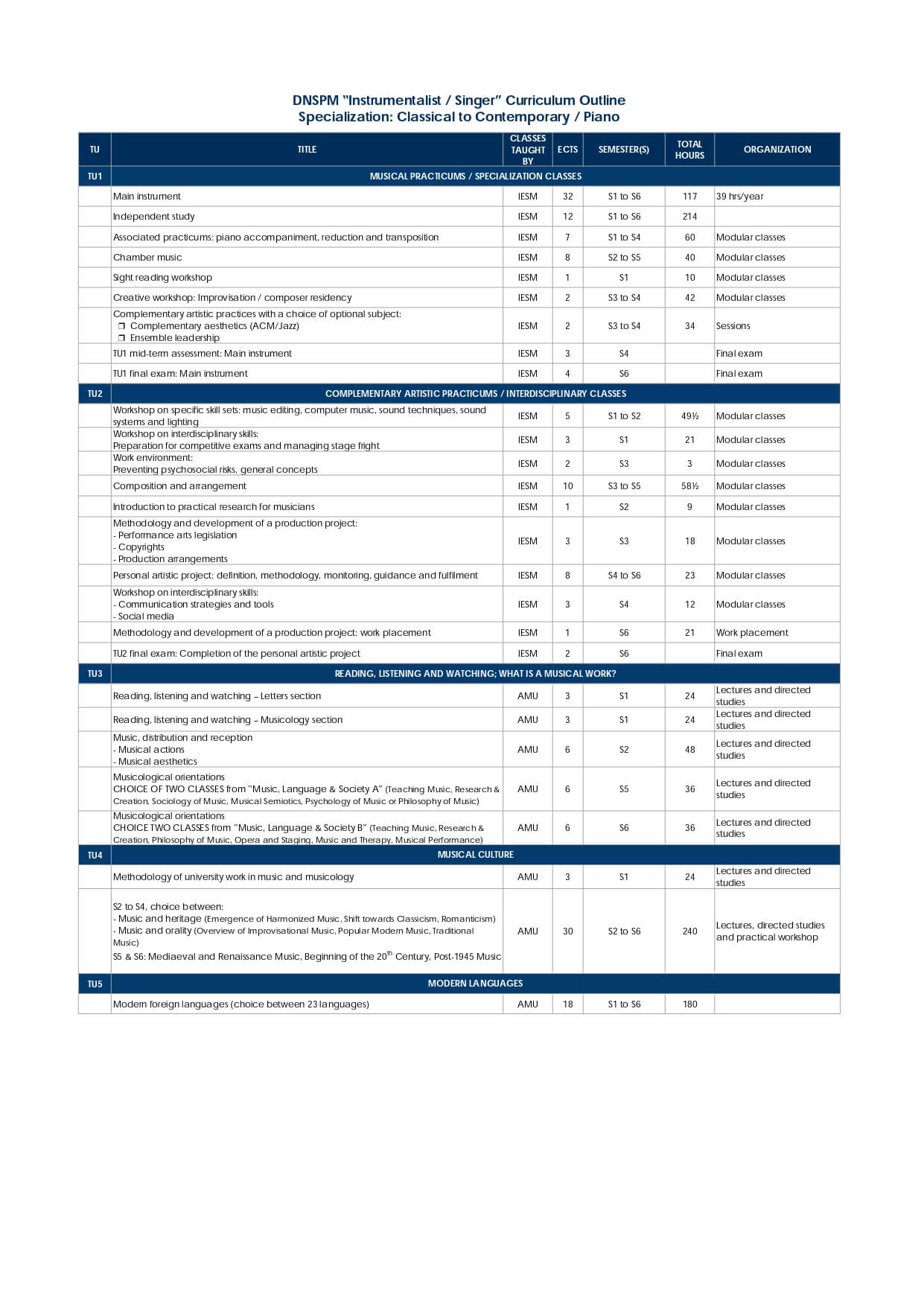
Orchestral instruments (violin, viola, cello, double bass, flute, oboe, clarinet, bassoon, trumpet, French horn, trombone, tuba, percussion and harp)
